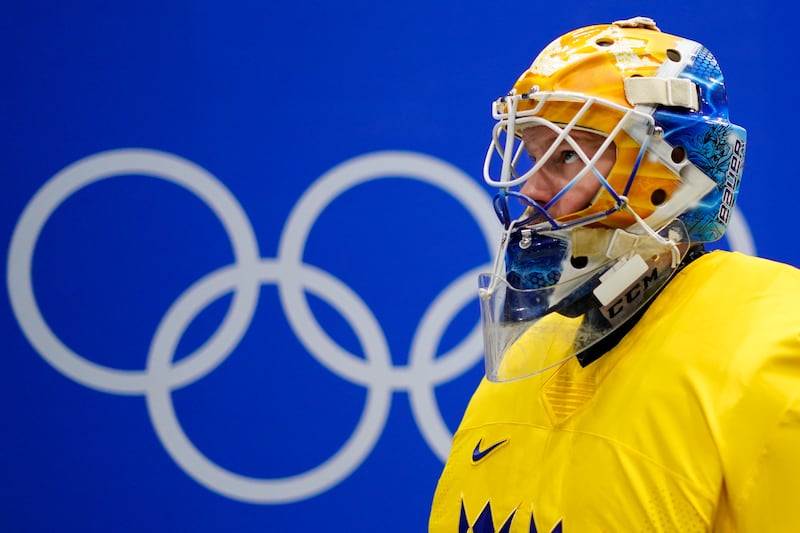The International Olympic Committee confirmed Monday that “confidential discussions” are underway with six places about hosting a future Winter Games but declined to name the additional bidders.
Salt Lake City; Sapporo, Japan; and Vancouver, Canada, were in the running when IOC leaders decided last December to delay choosing the host of the 2030 Winter Games. Now both the 2030 and 2034 picks may be made sometime next year.
Since then, Sweden has publicly expressed interest in joining the race and is seen as the frontrunner for 2030.
That only adds up to four contenders, but last week, IOC executive director Christophe Dubi told The Associated Press that in addition to Sweden, five places were interested in hosting for a total of six bidders.
What the IOC is saying about the unnamed bidders
In an email response to the Deseret News, the IOC press office said Dubi also told the AP that the interest expressed by the “six regions” is in hosting a future Winter Games, “not specifically 2030.”
The IOC press office also noted “potential hosts or interested parties in confidential discussions about hosting” are never named under the new, less formal bidding process that starts with what’s known as “continuous dialogue” before the field is narrowed.
That comes when bidders are chosen for “targeted dialogue,” meaning one or more contenders are recommended by the IOC Executive Board to begin contract negotiations ahead of a final vote by the full membership.
The IOC Executive Board had been expected to move a city or cities to targeted dialogue in December, but then announced more time would be taken to study the impact of climate change, including the possibility of rotating the Winter Games among a set group of cities.
In a statement to the Deseret News, the IOC press office said the Switzerland-based organization is “taking part in informal exchange and Continuous Dialogue with a number of potential hosts and Interested Parties for future Olympic Winter Games” at this point.
“All such discussions are non-edition specific until a Targeted Dialogue is opened for a particular edition/year of the Games,” the statement said, adding an explanation for the secrecy surrounding some of the interest.
“The IOC respects the confidentiality of potential hosts as they work toward the development of the public and private dimensions of their project. Potential hosts and Interested Parties may promote their vision/project at national level at any time.”
The pair of mystery bidders comes amid issues with the other cities in the running.
Salt Lake City is willing to host in 2030, but has stated a preference for waiting until 2034 because of the feared financial impact of back-to-back Olympics in the United States with Los Angeles the site of the 2028 Summer Games.
Sapporo has paused its 2030 bid amid a widening Olympic bribery and bid rigging scandal involving the 2020 Summer Games in Tokyo, held a year late due to the COVID-19 pandemic.
And Vancouver has yet to reverse the British Columbia government’s rejection of a request for a pledge of more than $1 billion towards hosting what would be the first Indigenous-led Olympics.
Is the IOC ‘playing coy’ with bidders?
Olympic observers say the IOC is trying to attract bidders by showing plenty of cities want a Winter Games, after likely hosts pulled out in past years. For the 2022 Winter Games, the IOC was left with a choice of Beijing, China, or Almaty, Kazakhstan.
The IOC is “trying to fatten up the pile,” said Mark Conrad, director of the sports program at Fordham University’s Gabelli School of Business in New York City, possibly by including places that previously expressed interest but never publicly launched bids.
Those include Barcelona, Spain, where infighting among communities in the Pyrenees mountains scuttled a 2030 bid, as well as the so-called “European super bid” involving France, Switzerland and Italy that may have already fallen apart.
“They’re playing coy, which is not unusual for the IOC,” Conrad said, noting it doesn’t have to disclose who’s bidding. “They don’t have to be transparent. That’s the whole thing. There’s no legal obligation for them to be transparent.”
Seeming to have more options, the professor said, “gives them leverage. If only one city is bidding, they can lose leverage regarding issues like sponsorship, the host city contract, things like that.”
Cities that want to host an Olympics have little choice but to go along, Conrad said.
“Let’s call it what it is, potentially acting in bad faith to sort of fish around for opposing bids,” he said, comparing it to a business being told it has the leading bid for a project and then finding out the company behind the project is secretly soliciting more bids.
The IOC can deviate from what Conrad said is standard operating procedure in the business world because it’s offering a unique opportunity.
“The whole thing is just your typical BS that goes on from them. But they have a lot of cards in their deck because it is the Olympics,” the professor said. “That’s the thing, it is that brand.”
Fraser Bullock, president and CEO of the Salt Lake City-Utah Committee for the Games, has said the IOC is “a great partner, very supportive of helping us assemble our best bid” following a recent update call with IOC staff.
Bullock, who served as chief operating officer of Utah’s previous Winter Games, in 2002, has welcomed other bids, but also acknowledged how hard it can be to pull together everything that’s required.
“You have to have public support. You have to have political support. You have to make the Games plan work logistically. It is a tremendous amount of work,” he said. “We know it’s hard to get from interest to actually across the finish line.”


